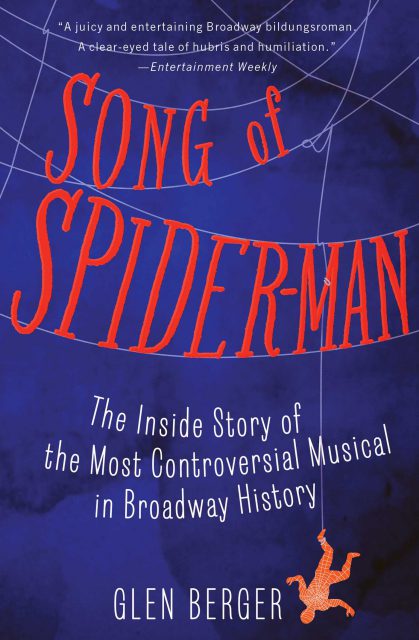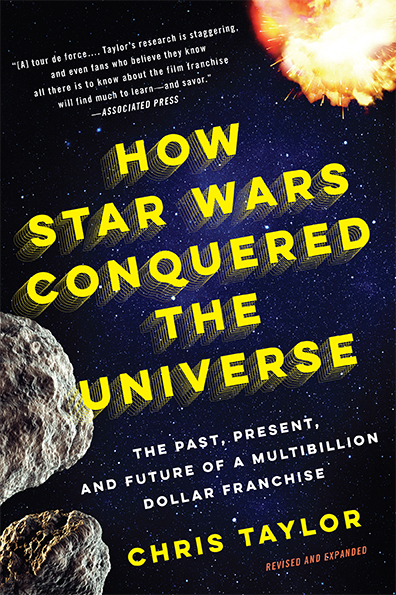Don’t Fear, Good Reads Are Here!
You already know how to win friends and influence people. Heck, you even can list the seven habits of the highly effective ones! And who moved your cheese is no longer a mystery.
In other words, you’ve business-booked yourself out of the business of reading business books.
Worry not! You still can satisfy the learnin’ part of your noggin and enjoy the dopamine rush of compelling storytelling through nonfiction narratives. While these books are not “business” by category definition, the tales they tell impart valuable business lessons for any reader, from the intern pool to the C-suite.
In no particular order, here are four recent reads well worth the time.
For Corporation Rehabilitation
Razzle Dazzle: The Battle for Broadway
Michael Riedel (Simon & Schuster, 2015)

Long the theater columnist for The New York Post, Riedel offers a decades-spanning account of Broadway’s epic bounce-back from the near-disastrous 1970s, in which the Great White Way swam dangerously in the red thanks to a trashed economy, high crime rates and all that jazz.
The protagonists (and often antagonists) are The Shubert Organization’s Bernard Jacobs and Jerry Schoenfeld, who took over the corporation from nepotistic reins and rode it into the powerhouse organization it remains today. As the author puts it, “They bet on creative people who had strange ideas for shows — a boy who blinds horses, a bunch of chorus kids, a man-eating plant, a show about cats.” You’ll want to read it again and again.
For Foreign Deals
The Tetris Effect: The Game That Hypnotized the World
Dan Ackerman (PublicAffairs, 2016)

As it turns out, doing business in the capitalist-unfriendly Iron Curtain isn’t easy. Yet that didn’t stop many from trying when programmer Alexey Pajitnov created a simple computer game of falling shapes that we now know as the worldwide brand phenomenon Tetris. Ackerman’s book is a virtual investigation into the red tape-riddled web of rights holders, would-be rights holders, corporate executives and nefarious characters from around the globe, all wanting a sizable piece of Pajitnov’s ever-lucrative pie.
One such person is Hungarian software salesman Robert Stein, who sold Tetris rights all over the place … before he actually had the right to do so. And therein begins a fascinating legal battle, the moves of which CNET journalist Ackerman handles with the deftness of a seasoned Tetris player rotating that darned Z-shaped piece in the game’s speedier rounds.
For Project Mismanagement
Song of Spider-Man: The Inside Story of the Most Controversial Musical in Broadway History
Glen Berger (Simon & Schuster, 2013)

Six years’ worth of behind-the-scenes turmoil surrounding the creation of the Broadway flop Spider-Man: Turn Off the Dark is packed into a vastly readable account by none other than the musical’s scriptwriter. With acclaimed director Julie Taymor, Marvel Comics and half of the band U2 as its stars, the book is a cautionary tale of unchecked egos and uncontrolled costs.
You’ll cringe as the $25 million budget balloons to $65 million, as 20 songs had yet to be written with one month remaining, as dubious creative decision follows dubious creation decision, resulting in a train wreck of a project on which no one seemed willing to apply even a modicum of pressure to the brakes. As Berger writes of the daily chaos, “These were good questions. We didn’t ask them.”
For Marketing Innovation
How Star Wars Conquered the Universe: The Past, Present, and Future of a Multibillion Dollar Franchise
Chris Taylor (Basic Books, 2014)

The story of Star Wars has been told ad nauseam, but never quite like this: Every other chapter finds the author examining in depth the franchise’s penetration into — if not impregnation of — our pop-culture consciousness.
The standout chapter focuses on how marketer Charlie Lippincott rewrote the rules of promotion, not only pushing George Lucas’ buzzless science-fiction movie into a record-shattering blockbuster, but creating campaign avenues that have become today’s standard practices — most notably on the stage of the San Diego Comic-Con. Of that particular strategy, Lippincott now says with regret, “What I did led to something I’m appalled at.” Agreed, yet the force was with his innovative methods.